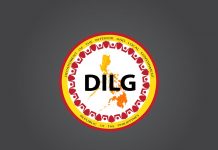In preparation for the planned localized peace talks, Department of the Interior and Local Government (DILG) OIC-Secretary Eduardo M. Año says that the Department will construct more processing centers or halfway houses for rebel surrenderers as well as its other programs for former rebels.
Año explains that the conflict between the government and leftist leaders will not hinder the efforts of the Department in addressing the urgent needs of former rebels who have made the decision to rejoin mainstream society.
“We are hopeful of the success of the localized peace talks in light of the announcement of the Communist Party of the Philippines (CPP) that they would rather oust the President than talk peace. We will never give up on peace, so we are preparing for the return of communist rebels in any way we can,” he says.
A halfway house is a temporary residence that serves as the processing center for former rebels. This could be a new structure that is established in provinces or highly urbanized cities that have expressed the need for such facility.
“These former rebels are risking everything by surrendering and we want to make sure that government is there every step of the way in their journey towards healing and reintegration in the society. Halfway houses are where their new life begins,” he says.
The DILG chief says that local government units (LGUs) shall be allocated with financial assistance from the Enhanced-Comprehensive Local Integration Program (E-CLIP) for the construction of the halfway houses which will “serve as a venue in rehabilitation and healing sessions, and education and skills training activities”.
DILG has recently issued Memorandum Circular 2018-105 which states the criteria in the selection and prioritization of LGUs for the said program. Included in the criteria are highest number of enrolled FRs; no existing halfway house or with halfway houses (not funded by the former CLIP and existing E-CLIP) that needs renovation or expansion; availability of donated lot/site to build the structure; and functional skills training programs, among others.
“A halfway house will serve as a reintroduction of former rebels to society. In here, we will try to equip them through skills training. Kaya napakahalaga na ang ating magiging partner LGU ay mayroong ganoong mga uri ng training,” Año explains.
The DILG Chief also mentions that each halfway house will be allotted P5M which can only be accessed after complying with the procedural requirements which include a complete assessment of the provincial/highly-urbanized city government, signing of a memorandum agreement, and submission of a project proposal and supporting documents.
“Interested LGUs, being the implementing partners, must be able to comply with all of the requisites provided by the DILG guidelines, for as much as we want to cater to all applications, we are still dealing with public funds,” he says.
Nine provinces were already granted P5M each as implementing partners which was used to construct processing centers at Kalinga, Mountain Province, Masbate, Negros Oriental, Northern Samar, Sarangani, Sultan Kudarat, South Cotabato, and North Cotabato.
Financial assistance amounting to millions were also allocated by the DILG to hundreds of former communist rebels for the past three years. An amount of P59.68-million has been utilized for immediate assistance to 471 former rebels, while 459 got livelihood assistance, 361 with reintegration assistance, and 132 were given firearm remuneration.



